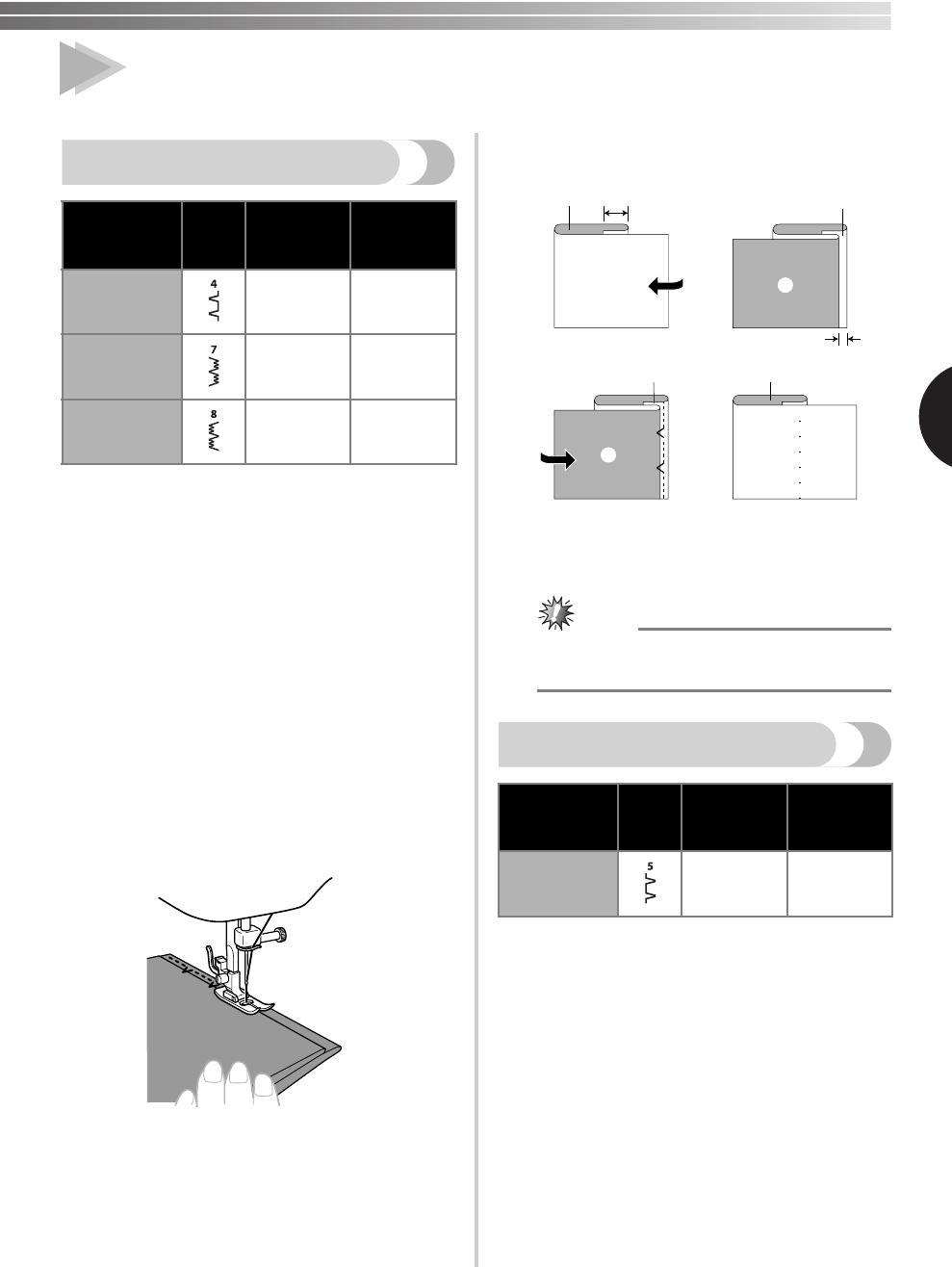
29
3
BUILT-IN STITCHES
Blind Hem Stitching
You can use the Blind Hem Stitch to finish the edge
of a project, like the hem of a pair of trousers,
without the stitch showing. Use the Blind Hem Stitch
when sewing on non-stretch fabrics, and the Stretch
Blind Hem Stitch for stretch fabrics.
1
Both threads should be the same color as the
fabric.
2
Fold back the hem, as shown in Fig. A. Then
fold the edge of the fabric as in Fig. B. Leave a
6 mm (15/64 inch) overlap at the edge.
3
Set the pattern selection dial to the Blind Hem
Stitch or Stretch Blind Hem Stitch, and then
set the stitch length.
4
Sew on the fold as in Fig. C.
5
When the fabric is unfolded you will have a
Blind Hem Stitch as shown in Fig. D.
1 Right side of fabric
2 Wrong side of fabric
3 10 mm (3/8 inch)
4 5 mm (3/16 inch)
Note
● The Stretch Blind Hem Stitch is useful for
stretch fabrics.
Shell Tuck Stitching
The Shell Tuck Stitch can be used to sew a picot
(lace-like) edge on lightweight fabric.
1
Set the pattern selection dial to the Shell Tuck
Stitch.
2
Adjust the thread tension so that it is tighter
than normal.
3
Place the fabric under the presser foot so that
it will be sewn along the bias, with the straight
stitches sewn on the seamline and the zigzag
stitches sewn slightly over the folded edge.
Stitch Name Pattern
Stitch
Length
[mm (inch)]
Stitch
Width
[mm (inch)]
Blind Hem
Stitch
F-2
(1/64-1/16)
3-5
(1/8-3/16)
Stretch Blind
Hem Stitch
F-1.5
(1/64-1/16)
3-5
(1/8-3/16)
Stretch Blind
Hem Stitch
F-1.5
(1/64-1/16)
3-5
(1/8-3/16)
Stitch Name Pattern
Stitch
Length
[mm (inch)]
Stitch
Width
[mm (inch)]
Shell Tuck
Stitch
F-3
(1/64-1/8)
3-5
(1/8-3/16)
AB
CD
1
2
1
1
1
2
2
2
4
3
3
XL2600.book Page 29 Thursday, November 4, 2004 9:46 PM


















